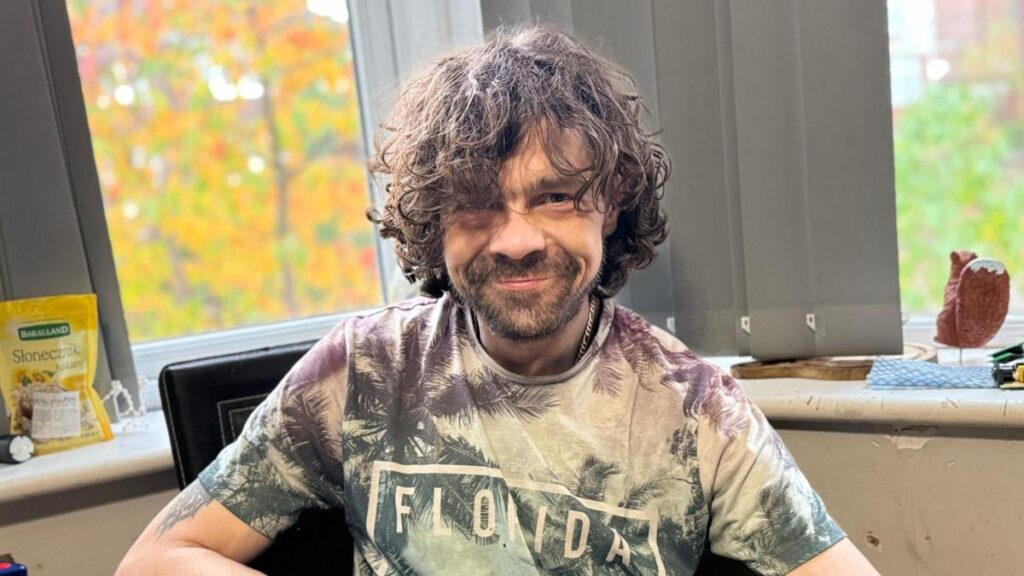Daniel Wozniak, a 41-year-old man whose life took a devastating turn, reflects on his experience of homelessness, describing it as akin to “giving up every dream that I had.” Originally from Poland and having lived in the UK for 14 years, Wozniak’s journey into homelessness began after he lost his job as a lorry driver when his employer went out of business. This significant loss coincided with a painful breakup, exacerbating his situation and leaving him adrift. At his lowest point, he found himself sleeping in a tent in the Bestwood area of Nottinghamshire and rough sleeping across various parts of the country for nearly a year, a period that he describes as deeply isolating.
The trauma of homelessness changed Wozniak’s perception of life in a profound way. He recalls losing a train ticket that prevented him from taking a job opportunity in Southampton, which plunged him into a cycle of despair and displacement for around nine months in London. Wozniak also suffered severe physical injuries from a motorcycle accident during this time, which left him with broken bones and a metal plate in his spine. Struggling with the compounded feelings of loss, loneliness, and a sense of wasted potential, he vividly expresses how homelessness robbed him of all that he once aspired to achieve, making it difficult for him to process time and recall specific memories from that period.
Despite the overwhelming darkness of his circumstances, Wozniak eventually saw a glimmer of hope when members of the Framework charity intervened. This charity plays a pivotal role in supporting homeless individuals, helping them rebuild their lives and providing them with stable accommodations. Through their intervention, Wozniak was housed in a rented one-bedroom flat in Carrington, where he has now resided for over a year. This change in living conditions has been a linchpin in his recovery journey, allowing him to regain a sense of purpose and stability in his life.
Living in the flat has brought several new joys into Wozniak’s life, one of which includes caring for pets, a cat and a gecko lizard, that provide companionship and structure in his daily routine. He emphasizes that having responsibilities, such as looking after his pets, is crucial to his healing process. These animals help him rise each day, something he struggled to do while homeless, when he felt utterly devoid of purpose and direction. Staying motivated has been critical; he acknowledges that the emotional scars of homelessness intersected with his mental health, making it feel as though he had turned off a part of himself.
As Wozniak continues to navigate his new life, he takes a cautious approach to the future. He remains hesitant about setting specific goals, having previously experienced setbacks when he did so. This time, his focus is on living day by day and appreciating the stability he currently has without the pressure of expectations. He maintains regular appointments with Anthony Cuts, his caseworker at Framework, who continues to assist him with various aspects of life, including managing bills and addressing any health concerns. The ongoing support from the charity has been instrumental in allowing Wozniak to adapt to his new circumstances and embrace the possibility of a brighter future.
Daniel Wozniak’s story serves as a powerful reminder of resilience in the face of adversity. His experience sheds light on the profound struggles associated with homelessness, yet it is also a testament to the hope and support systems available to those in need. By sharing his journey, he aims to inspire others who may find themselves in similar situations to recognize that recovery is possible. The transition from homelessness to stability, while fraught with challenges, is attainable with the right support, compassion, and determination to reclaim one’s life. Through his journey, he offers a beacon of hope for those still grappling with despair.

